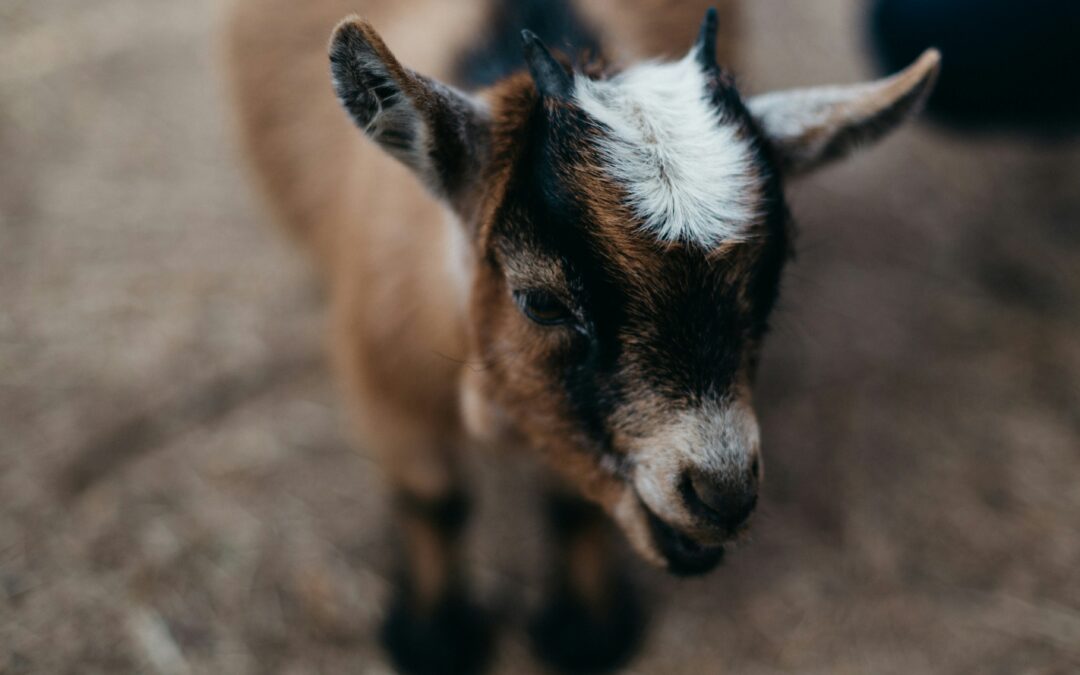A successful breeding season for sheep and goats begins long before introducing rams and bucks to ewes and does. Proper preparation promotes healthy pregnancies, high conception rates, and robust lambs and kids. A key component of preparation includes focusing on biosecurity, health assessments, and body condition to set your flock up for success. Here are essential steps to get your sheep and goats ready for the breeding season.
TIP #1: Prioritize Biosecurity for a Healthy Flock
Biosecurity is important for protecting your flock’s health and ensuring a successful breeding season. Introducing new animals or rotating breeding stock can expose your flock to infectious diseases that compromise fertility and overall productivity. To minimize risks, implement these biosecurity measures:
- Quarantine: Isolate new animals for at least 30 days to monitor for illness and prevent potential disease spread.
- Disease Testing: Screen for infectious diseases such as Caseous Lymphadenitis (CL), Johne’s Disease, Brucellosis, and Ovine Progressive Pneumonia (OPP).
- Disinfection: Regularly clean and sanitize equipment, feeding areas, and water troughs to reduce pathogen transmission.
TIP #2: Fecal Testing and Parasite Control
Parasites, such as Barber Pole worms, coccidia, and liver flukes, pose a significant threat to the reproductive health of sheep and goats. They drain essential nutrients, leading to reduced body condition scores (BCS), anemia, decreased fertility, and delayed estrus cycles. Addressing parasite burdens before breeding is critical to ensuring optimal reproductive performance.
The Importance of Fecal Testing
Fecal testing, conducted 4–6 weeks before breeding season, helps identify parasite loads and the specific types of parasites affecting your flock. This enables:
- Accurate Diagnosis: Determines which dewormers are most effective for specific parasites.
- Strategic Treatment: Focuses on treating high-burden animals, reducing resistance to deworming medications.
- Resistance Monitoring: Identifies patterns of drug resistance to maintain effective parasite management strategies.
Based on test results, targeted deworming focuses on treating the infected animals, using medications tailored to the specific parasites identified. Effective management practices, such as rotational grazing, clean feeding areas, and avoiding overcrowding, help minimize reinfection. Follow-up fecal testing 10–14 days after treatment will help monitor if the deworming was successful and identifies any resistance issues.
TIP #3: Evaluate Ewe and Doe Body Condition
Body condition score (BCS) is a critical factor in reproductive success. Ewes and does should have a BCS of 2.5 to 3.5 at the start of breeding season to ensure they have sufficient energy reserves for conception and gestation. Animals that are too thin may struggle to conceive or maintain pregnancy, while those that are overweight may encounter complications during gestation or lambing/kidding.
To optimize BCS:
- Provide high-quality forage, such as alfalfa hay, to meet nutritional needs.
- Supplement diets with grain or concentrates if animals are underweight.
- Avoid overfeeding to prevent excessive weight gain.
Evaluate BCS at least six weeks before breeding season to allow time for dietary adjustments if needed.
TIP #4: Health Checks for Reproductive Readiness
A thorough health check of your flock is a high priority before the breeding season. Routine examinations by a veterinarian can help identify potential health issues that could affect fertility or pregnancy outcomes. Important steps include:
- Vaccinations: Make sure that ewes and does are up-to-date on core vaccines and other region-specific diseases.
- Reproductive health assessment: Check for signs of uterine infections, abnormal estrus cycles, or physical abnormalities that could impact conception.
- Nutritional supplementation: The Tri-State team will help advise if your animals have a balanced and efficient diet.
Health checks should extend to rams and bucks as well. A breeding soundness exam (BSE) will evaluate their semen quality and overall fitness to inform if they’re ready for breeding.
TIP #5: Nourish for Fertility
Proper nutrition leading up to the breeding season supports overall health and enhances fertility. Flushing, the practice of increasing energy intake 2–4 weeks before breeding, can improve ovulation rates in ewes and does. However, it’s essential to balance increased energy with the risk of overfeeding.
Recommended nutritional practices include:
- Feeding forage with adequate protein and energy content.
- Providing mineral supplements to address deficiencies.
- Monitoring weight gain to prevent excessive BCS changes.
Both males and females benefit from a well-balanced diet that supports energy demands during the breeding season.
TIP #6: Monitor Estrus and Ovulation
Tracking estrus cycles is essential for managing a successful breeding program. Using a marking harness on rams and bucks allows you to monitor breeding activity, identify bred females, and determine animals needing additional attention. Estrus synchronization can further streamline your program by concentrating lambing or kidding within a specific timeframe. Don’t hesitate to consult with our veterinarians to determine the best synchronization strategy based on your flock’s size and breeding goals.
TIP #7: Plan for Arrival
Lambing and Kidding Facilities
Clean, dry, and well-organized birthing areas minimize stress and infection risks. Individual pens for privacy, proper ventilation, and supplies like iodine for umbilical cords, colostrum replacers, towels, and heat lamps help promote safe deliveries and healthy offspring. We have prepared a brochure especially for supporting the lambing and kidding process here.
Our team offers gestational health monitoring, birthing assistance, emergency care for complications, and postpartum support to help the mothers and newborns thrive. We also provide tailored feeding programs and guidance on pre-lambing vaccinations and deworming protocols.
Maximize Your Herd’s Potential, Start Preparing Today!
A productive breeding season starts with careful planning, health assessments, and proactive management. By prioritizing biosecurity, conducting fecal testing, optimizing body condition, and addressing health concerns early, you set your sheep and goats up for reproductive success.
Not sure your flock is ready for the breeding season? Schedule a consultation with Tri-State Veterinary Services. Our veterinarians can provide health assessments, testing, and personalized recommendations tailored to your small ruminant operation. Call us today at (860) 459-0986.

